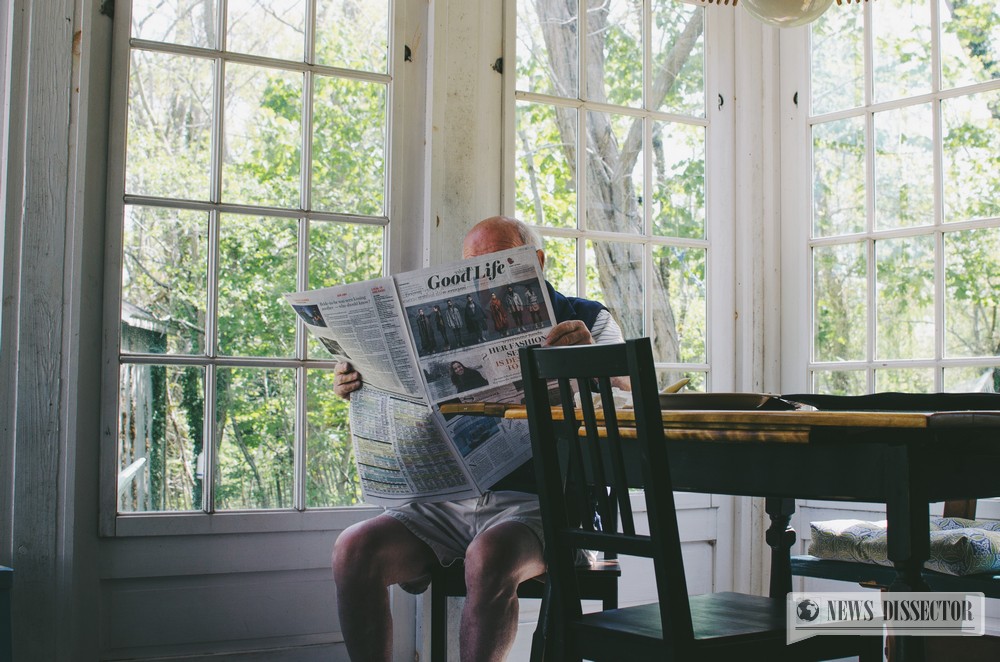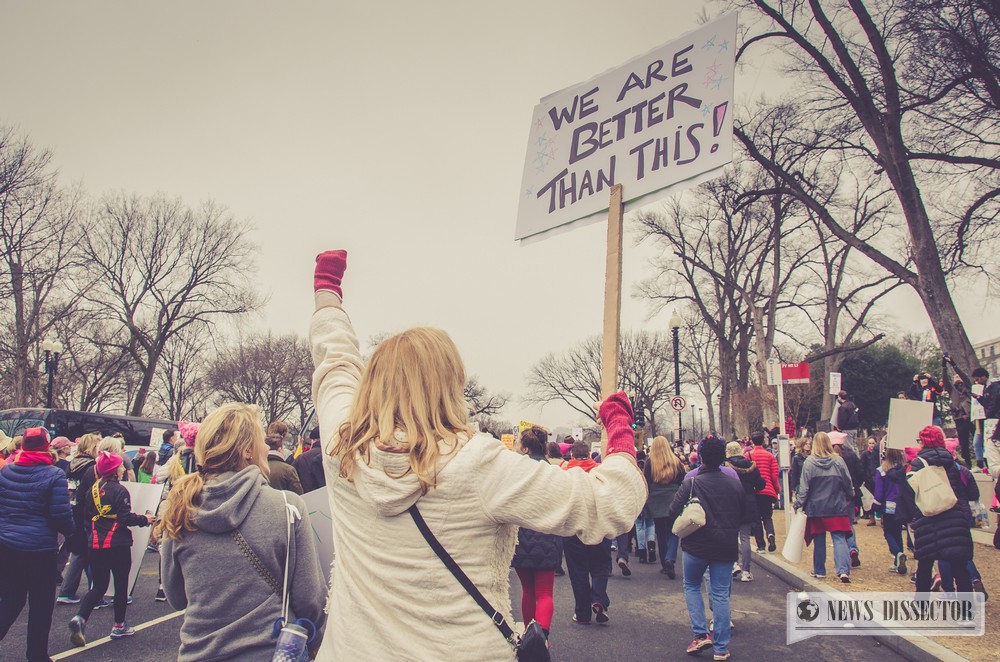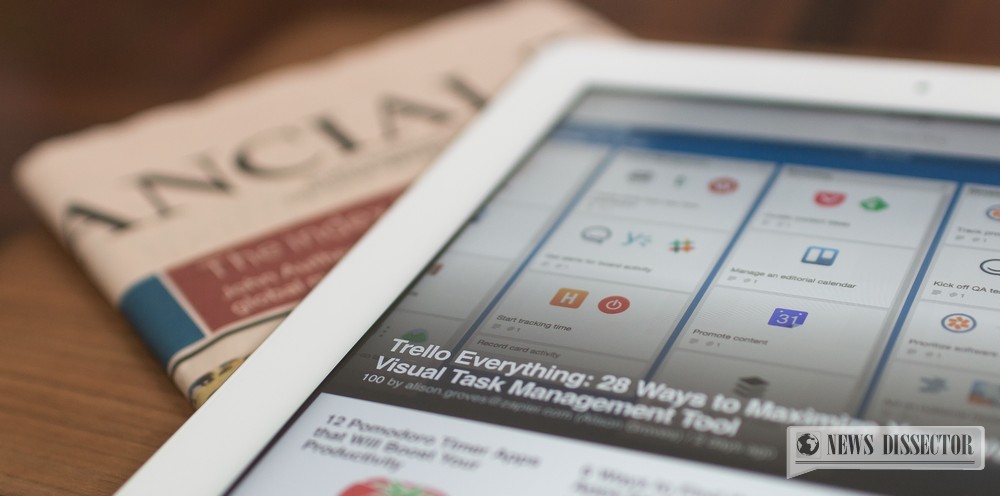Is this confusing you in any way? Great! It means that you were paying attention. Keep it up!
Information is the key asset today. It presents what is happening, where, when, and why. An intelligent person will not only store and understand these things, but will also know how to make use of this information. Some of the advantages of being informed involve understanding a context, being able to think ahead, being able to make an informed decision regarding a potential investment, knowing when to put your money in and when to take it out of a project. And these things are not only important to people who are high rollers. They are vital to people who are on a limited income and who need to be very careful with what they do with their money.
7 Reasons Why Critical Thinking Is Important in Analyzing Articles
1. It will help you distinguish between articles written on command and real information

Photo by: https://unsplash.com/@mrsamwheeler
It will come as no big news to anyone to mention that while some people in the press are dedicated to professionalism and know how to properly and ethically dig out and present the truth, there are also those who are no strangers to fabricating news. This being said, it is also true that we still need to get our information from somewhere and that being able to distinguish between real journalistic news and sensational-chasing articles is imperative.
Sure, some people are able to write in such a compelling manner that they are very convincing. Plus, false information can spread just as easily, therefore, checking other sources can sometimes give out the same result. Critical thinking does not allow you to simply accept anything that is put in words and will help you keep your reserves until a piece of information truly convinces you.
2. It will keep you from becoming biased yourself
Having a strong belief is never a bad thing. However, being blinded by your own belief and refusing to accept any more information is a big mistake. Critical thinking keeps your mind open and allows you to accept new information and integrate it with what you already know. This way, if you ever have the wrong idea about anything, you can get things right, eventually.
3. It will help you get THE BIG PICTURE

Photo by: https://unsplash.com/@flenjoore
Some people waste away in minor details, while others struggle to get the big picture. Both approaches are correct, as long as they do not dismiss the importance of the other half. Therefore, while facts and details compose the big picture, they do not come together unless they are connected the right way. On the other hand, you cannot get to the real big picture without all the correct information. If you do, you might get the wrong idea altogether.
4. It will help you see connections even before someone spells it out for you
Critical thinking is also a way to structure your own thoughts on a matter. This means the information on an issue is constantly made accessible to you and you can apply it and recognize it in other contexts as well. When another article appears to confirm the connection you saw previously, you know you are on the right track.
5. It will help you separate emotions from real thoughts

Photo by: https://unsplash.com/@jerryinocmd
Sometimes, news is on sensitive subjects and it calls on people to take sides. This is where critical thinking really comes in handy. Without it, you risk rallying with those who make the most emotional plea but who do not have the right arguments on their side. And when both parties involved in a conflict are just as much invested, they can use all available emotional tools to try and win over as many people as possible. Unless you have already picked a side, you could be thrown back and forth, unable to decide on who is right.
Emotional blackmail is a very powerful weapon but it is not something critical thinking cannot overpower. Yes, we are all prone to believe something that touches our hearts, but this does not always make it ok. Will choosing critical thinking over emotions get you the empathy award? No. More probably, people will think that you are cynical. However, it will help you push aside the fluff of the situation and judge things without other implications.
6. It leaves no room for subjectivity
We have already discussed that it does not allow you to be biased. But neither is it permissive of other people’s biases. And we are not talking about articles written on command and intended to win you over to one side. We are talking about articles that deliberately take a personal stand and that try to convince you that the author’s approach is the right one. Professionally speaking, this type of attitude should not have a place in modern day media, as the role of the journalist is to inform, not to influence, nor give his/her own rendering of events. Those are completely different types of materials, they are signaled as such, and they must be approached differently. However, when a journalist’s own opinion makes its way into the article and pulls all the information toward making that point of view, only critical thinking can single out this behavior.
7. It separates verified information from unchecked information, a.k.a. opinions

Photo by: https://unsplash.com/@maguay
Critical thinking equips you with the tools you need to cut out the author’s personal beliefs from real, hard facts. And this is something very difficult to achieve since many journalists stick to their deadlines more than they stick to their dedication to turn in a verified material. This makes things more difficult for you, but better, on the long run.
The purpose of this article is not to emphasize the lack of professionalism of some journalists. To do so would be to deny the efforts of so many great professionals who stick to the facts and deliver compelling articles. However, critical thinking should be something we need to equip ourselves with, as soon as we learn to read. It is the only thing helping us distinguish between real and verified information, and the one that simply weighs more and helps the scales tilt in one direction. We might not always know a journalist’s affiliation or a newspaper’s financial dependence, but we can always think for ourselves. And this is a good start.



